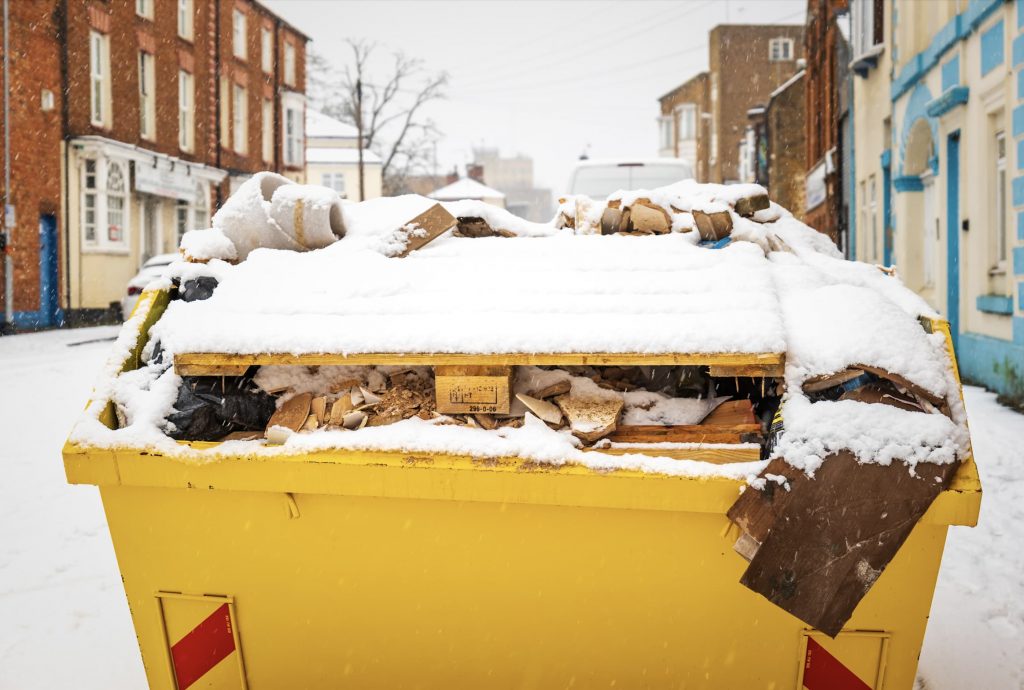Should You Cover a Skip in the Rain?
There are few things you can rely on quite like rain. Even during a British summer, there is always a risk of it raining, but you’re certainly more likely to see prolonged downpours in autumn and winter.
So whether you’re taking on a project in July or December, how does the risk of rainy and windy conditions impact your waste? This month at SCS Waste, we’re going to be talking about whether you need to cover your skip and what to do about heavy rainfall.

Do skips have drains in them?
First of all, we should point out that at SCS Waste, all our skips come with a drain hole, designed to allow water to flow through if your skip does get rained on. Most skips should come with this, but if you notice rainwater building up, it might be the kind of drain with a stopper that needs to be removed.
Our vehicles also come with weight limits for payloads to ensure our drivers can drive safely within the local community on the south coast. For that reason, you need to consider whether your waste will absorb lots of rainwater and push this limit. Soil and wood tend to absorb water easily, increasing the overall weight of the skip. If you’re at all concerned, you could choose to cover the top of your skip — something we’ll discuss next.
Should I cover my skip?
Under ordinary circumstances, it’s not necessary to cover a skip, but when heavy rain and high winds are predicted, we absolutely recommend it.
Something as simple as a tarpaulin tied firmly over the top of your skip while it’s not in use could help you in the long run. Windy conditions can see objects lifted out of the skip, with the possibility of injuring passers by or causing damage to nearby property. Not only does a covering sheet prevent this, but it also ensures that most rainwater is kept out of your skip.
Don’t put liquid waste in your skip
Just as much as you want to avoid lots of rainwater getting into your skip, you should also avoid putting liquid waste in your skip. General liquids should be disposed of down the drain, while paints, chemicals, oils and any other potentially hazardous liquids should be disposed of via specialist collections.
You can find out more about restricted items and what we don’t accept in our skips in one of our previous posts. If you’re still unsure and have a question about your waste, just ask our team when making a booking.
Does snow affect skips?
Snow is essentially just frozen rain, so while it might seem like a very festive frosting for your skip, it could eventually impact the weight of your waste if the snowfall is heavy enough. Again, our skips have drains, so once the snow melts it should drain away easily, but if you know the forecast is for heavy snow then we’d recommend covering your skip until collection just to be safe.
Should we experience extreme levels of snow in the region, it’s unlikely that we’ll be able to collect your skip until the roads are safe again.

We offer a range of skip sizes to meet any need and can provide friendly, honest advice to help you get the best service when it comes to waste disposal. As a licensed waste carrier, you can rest assured that we adhere to the highest safety standards when it comes to transporting and disposing of your waste.
To book reliable skip hire from the professionals in Arundel, Littlehampton, Bognor Regis and the surrounding areas, simply call our team today.

